Alright, turning 60 means your body’s got a new rulebook — and some foods just didn’t get the memo. Say goodbye to those sneaky snacks that love to mess with your joints, heart, and energy like they’re on a prank mission.
Time to dodge these 26 troublemakers so you can keep feeling spry, sassy, and ready to outdance everyone at family parties.
1. Spicy Peppers
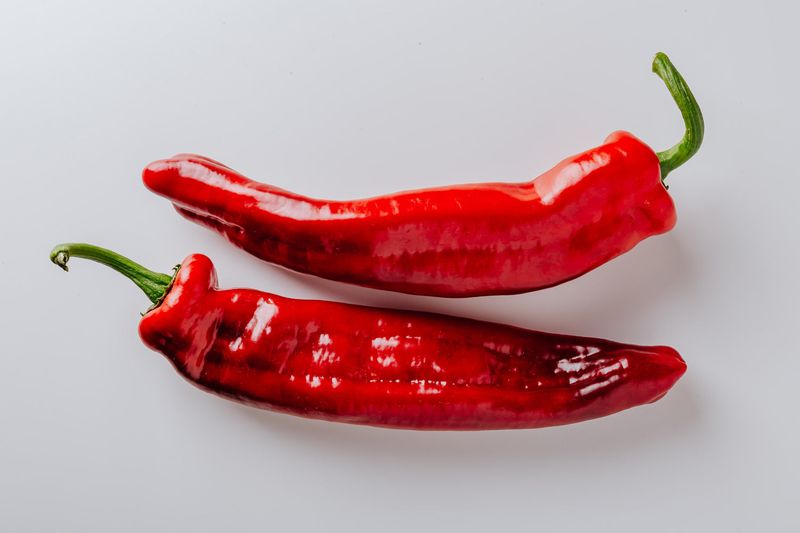
As appetizing as they may seem, swapping spicy peppers for milder alternatives can be beneficial once you hit 60. The intense heat of a pepper can irritate sensitive stomachs, often leading to discomfort or heartburn, an ailment that becomes more common with age.
Additionally, spicy foods can exacerbate acid reflux symptoms, which are more prevalent among older adults. While some might miss the fiery kick, opting for gentler seasonings can keep meals flavorful without the unwanted aftermath.
2. Puffed Snacks

Puffed snacks, often a go-to for mindless munching, might not be the best choice after 60. These airy delights are typically high in sodium and low in nutritional value, contributing little to a balanced diet.
Excessive salt can lead to hypertension, a condition that poses greater risks as we age. Moreover, the lack of fiber and protein in these snacks leaves you unsatisfied, tempting you to consume more.
3. Sugary Sodas
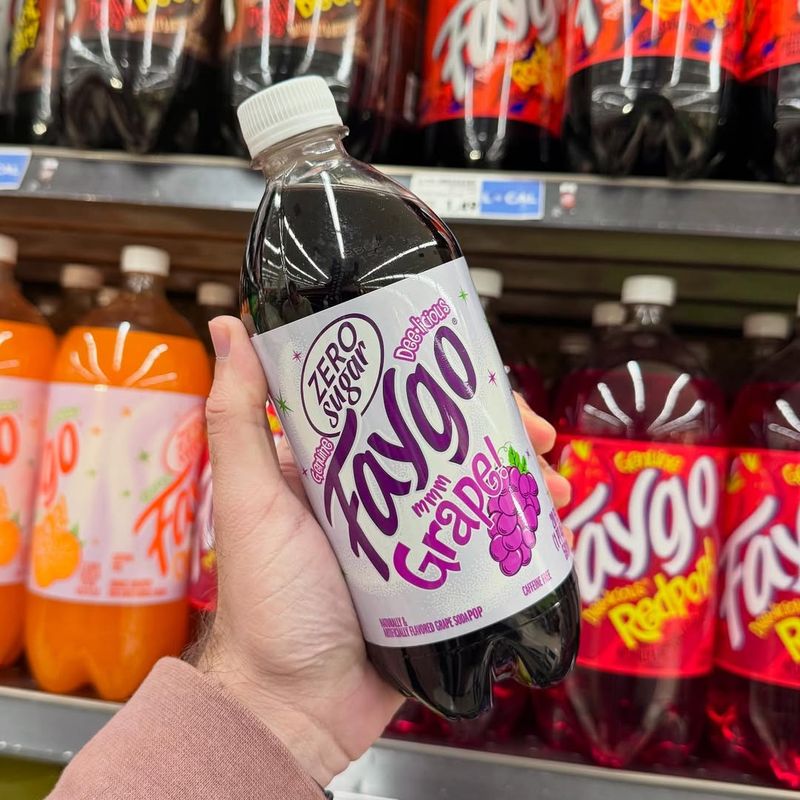
The fizz and pop of sugary sodas might be enticing, but it’s best to steer clear. Regular consumption can lead to health issues like diabetes and obesity. Not only do they pack a calorie punch, but they also lack nutritional value.
Opting for water or herbal teas can be a refreshing alternative. When thirst strikes, think more about hydration and less about sugar content, ensuring you maintain a healthy balance in your lifestyle.
4. Processed Meats

Processed meats, while convenient, might not be the healthiest option. Often high in sodium and preservatives, they can contribute to heart disease.
It’s wise to choose leaner, fresher cuts of meat or plant-based proteins. By doing so, you give your body a break from unnecessary additives, allowing your heart to beat strong and steady. A small change can lead to significant health benefits over time.
5. Fried Foods

Fried foods might be good for the soul, but not so much for the heart. High in unhealthy fats, they can increase bad cholesterol levels, leading to cardiovascular issues.
Consider baking or grilling as healthier alternatives that still offer delicious flavors. By tweaking cooking methods, you can enjoy meals that satisfy without the heartache. Your heart and waistline will thank you for this thoughtful choice.
6. White Bread
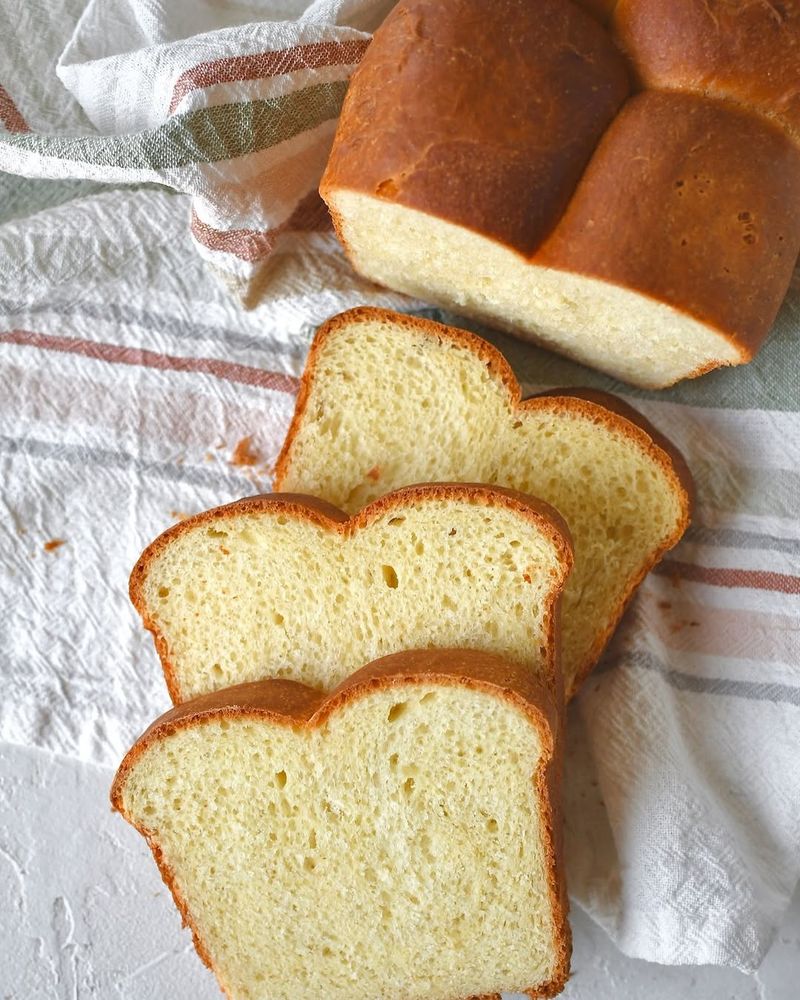
White bread, although a staple in many households, lacks the fiber needed for a balanced diet. Its high glycemic index can cause spikes in blood sugar.
Switching to whole grain bread is a simple way to improve digestive health. As you savor each bite, you’ll feel fuller and more satisfied. It’s a delightful change that offers more nutrients with every slice.
7. High-Sodium Snacks
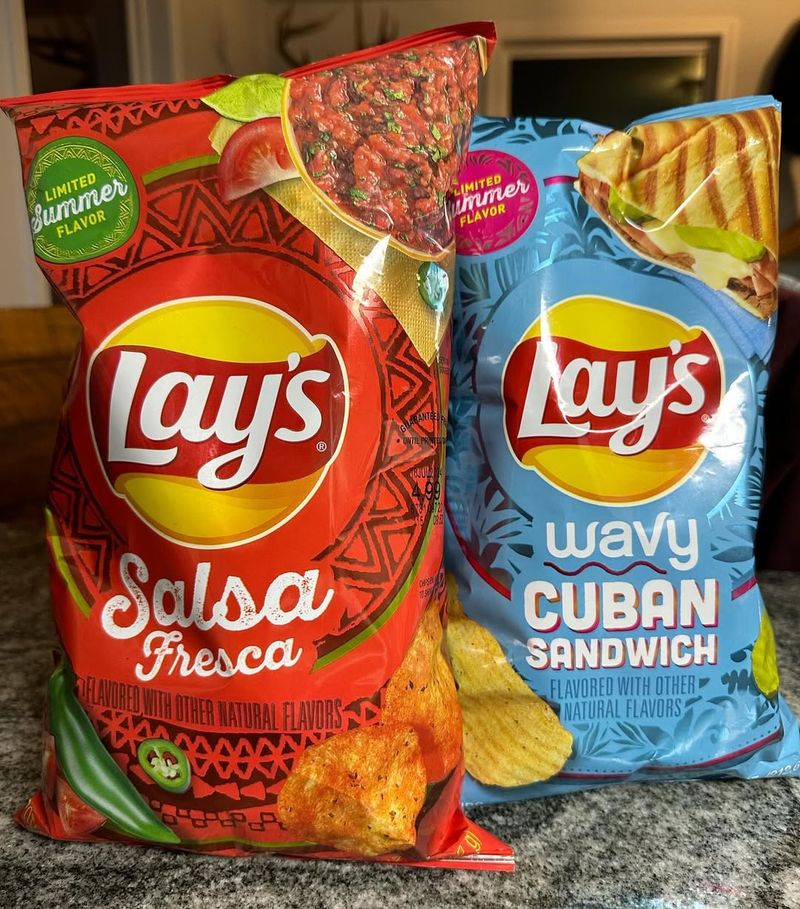
Salty snacks might crunch well with television time, but they can elevate blood pressure. High sodium intake is a sneaky contributor to cardiovascular diseases.
Choosing unsalted or low-sodium alternatives can be a heart-friendly move. When you feel the munchies coming on, consider healthier snack options that won’t compromise your health. A little awareness goes a long way in maintaining a healthy blood pressure.
8. Artificial Sweeteners
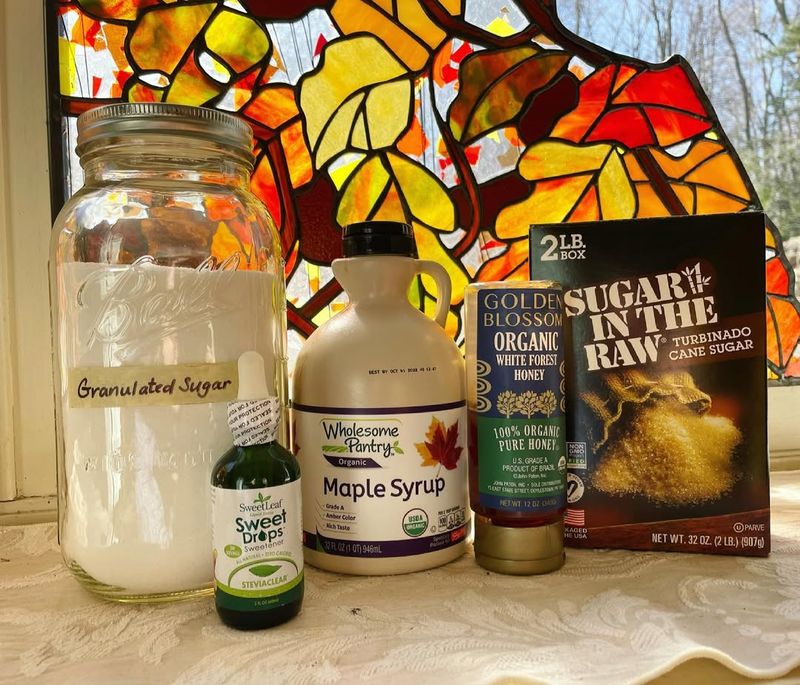
Artificial sweeteners seem like a good sugar swap, but they might confuse your metabolism. Some studies suggest that they can disrupt gut bacteria and lead to weight gain.
Choosing natural sweeteners like honey or stevia can offer a more balanced approach. Sweetening your day doesn’t have to come with side effects. Embracing nature’s sweetness can make your morning brew even more delightful.
9. Canned Soups
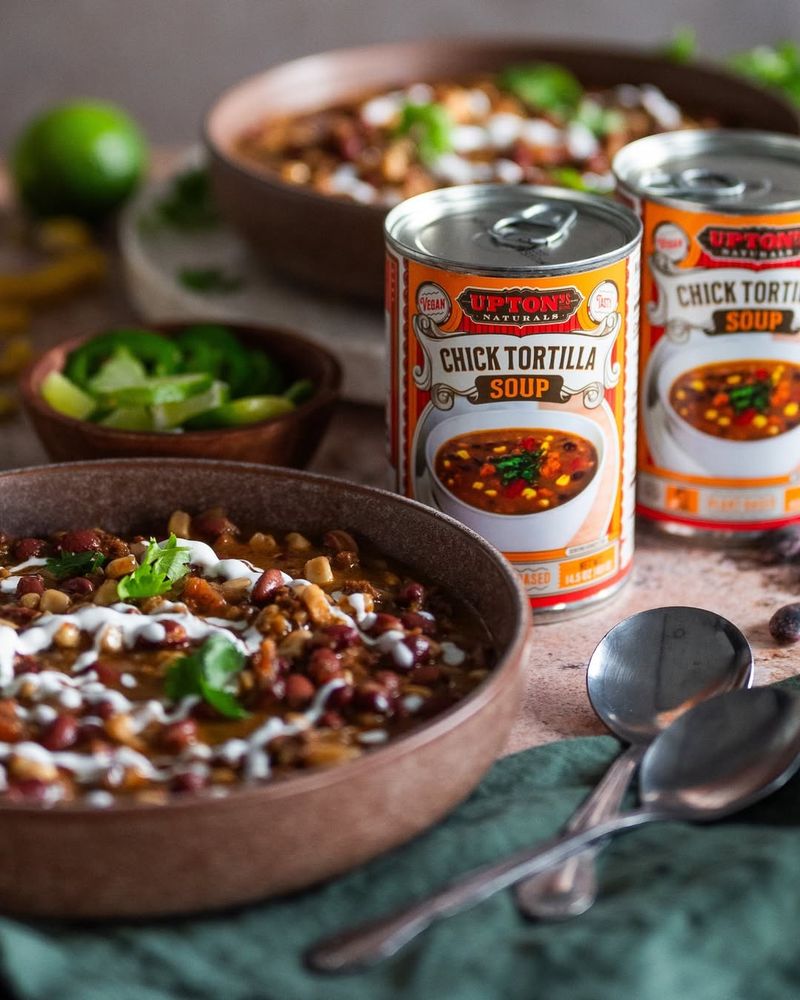
Canned soups are convenient, but the high sodium content is a concern. This can be especially problematic for those with hypertension.
Preparing homemade soups with fresh ingredients offers control over sodium levels. It’s not just healthier but also a comforting way to enjoy a meal. The aroma of simmering soup is a reward in itself, filling your home with warmth and love.
10. Pastries And Cakes

Sweet treats like pastries and cakes can be tempting, but moderation is key. Loaded with sugars and fats, they can contribute to weight gain and diabetes.
Opting for fruits or dark chocolate can satisfy sweet cravings with added health benefits. The joy of eating should come with the bonus of nourishment, making these choices a delightful indulgence.
11. Margarine
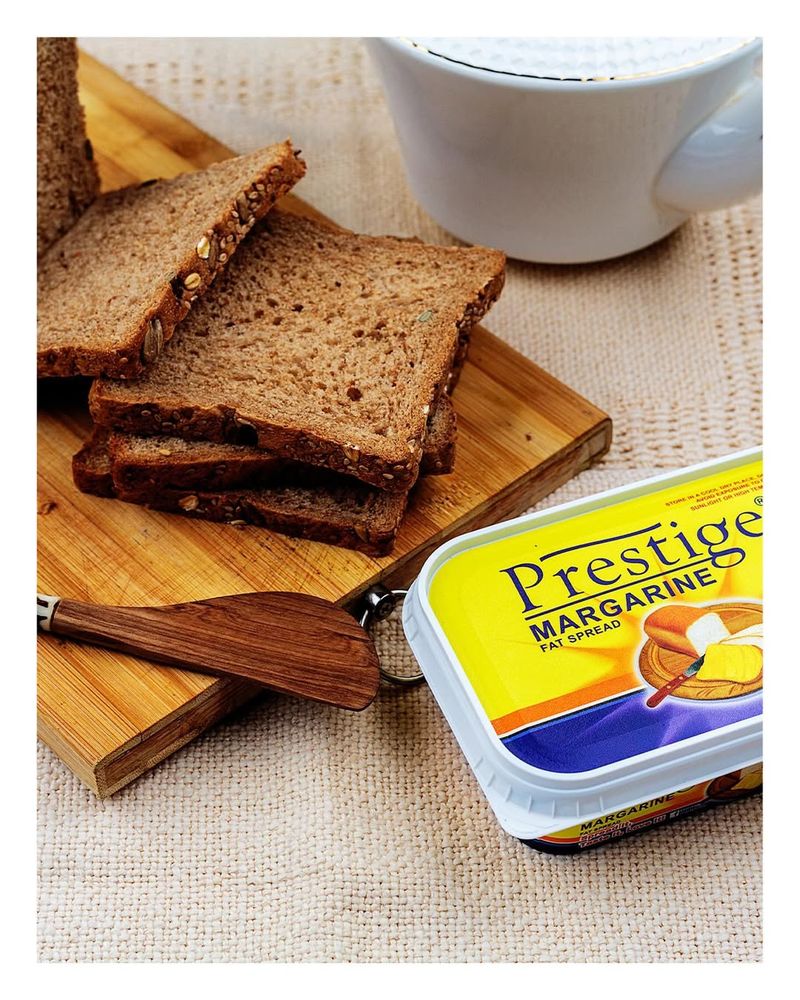
Margarine, often used as a butter substitute, contains trans fats that can harm heart health. These fats are known to increase bad cholesterol levels.
Switch to healthier fats like olive oil or real butter in moderation. It’s a small change with a significant impact, promoting better cardiovascular health. Making informed choices ensures you enjoy your meals without compromising well-being.
12. Energy Drinks
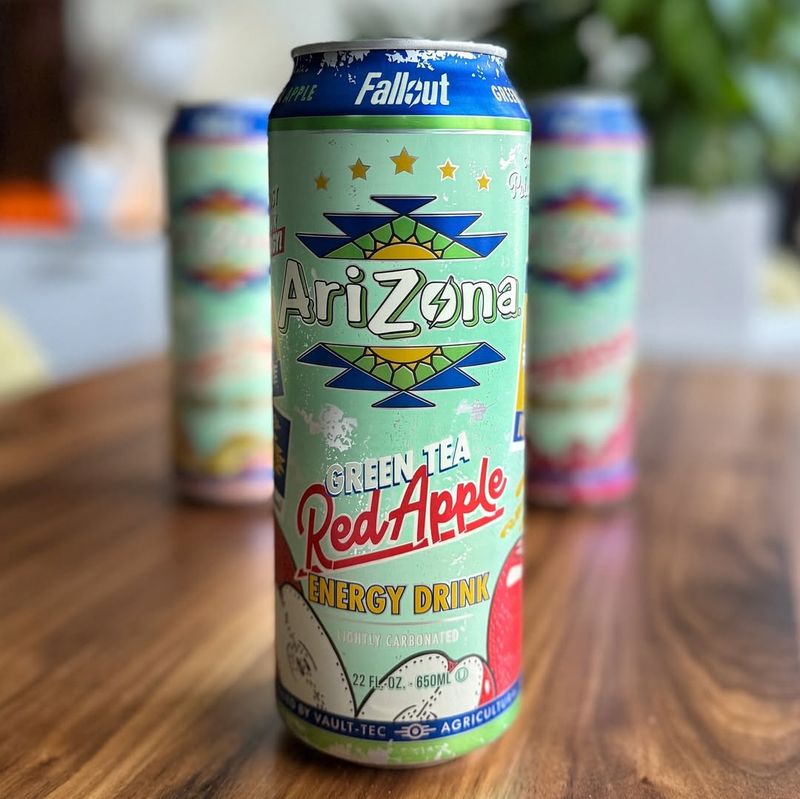
Energy drinks promise a quick boost but are loaded with caffeine and sugar. This combination can lead to increased heart rate and high blood pressure.
Reaching for water or natural juices is a more balanced way to stay hydrated and energized. When you need a pick-me-up, consider options that support your energy sustainably. Keeping your body in tune with its natural rhythms is key to feeling your best.
13. Cream-Based Dressings
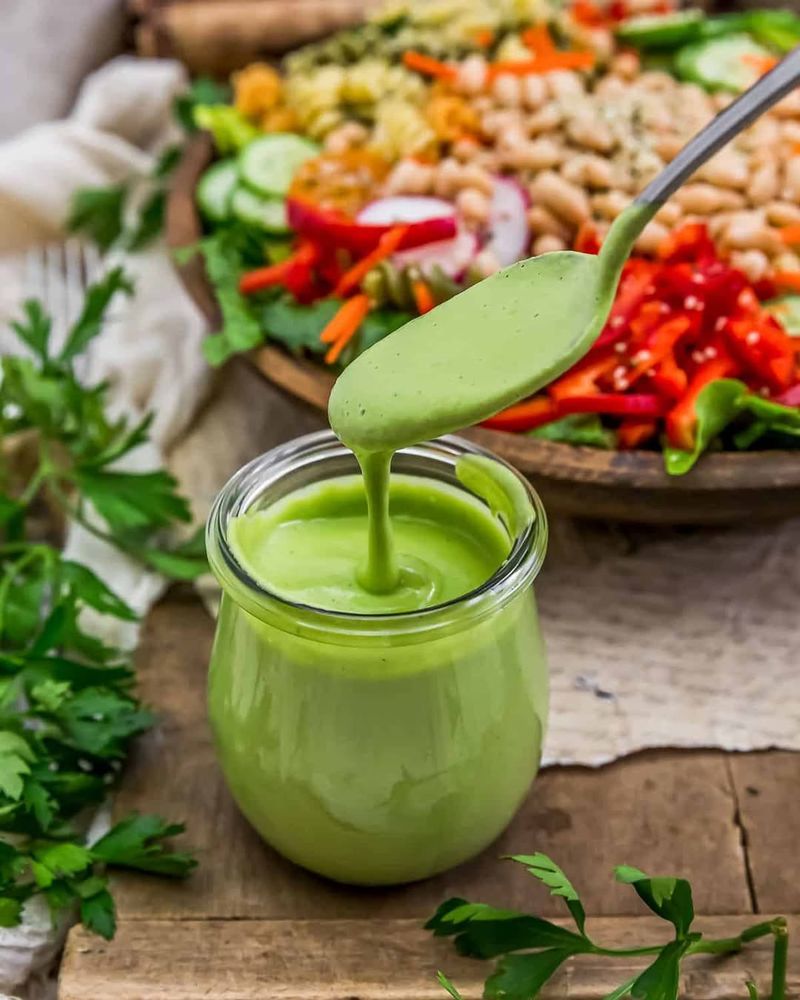
Cream-based dressings may add flavor but also unwanted fats and calories. These can overshadow the nutritional benefits of your salads.
Opting for vinaigrettes or olive oil-based dressings can enhance your meals without the extra calories. By choosing lighter dressings, you keep your salads nutritious and delicious, making every meal a step toward better health.
14. Instant Noodles

The convenience of instant noodles is undeniable, but they’re often high in sodium and lacking in nutrients. Consuming them regularly can lead to health issues, especially for older adults.
Substituting with whole grain pasta or rice noodles can be a more nutritious choice. Adding fresh vegetables and proteins elevates the meal, providing essential nutrients and flavors. It’s a delicious way to nourish your body and satisfy your taste buds.
15. Ice Cream

Ice cream is a beloved treat, yet its high sugar and fat content can be detrimental to health. Overindulgence may lead to weight gain and increased cholesterol levels.
Enjoying frozen yogurt or homemade fruit sorbets can still satisfy your cravings. Relishing the taste of summer without compromising health is possible with these alternatives. Every scoop should be a celebration of flavor and well-being.
16. Pasta Sauces
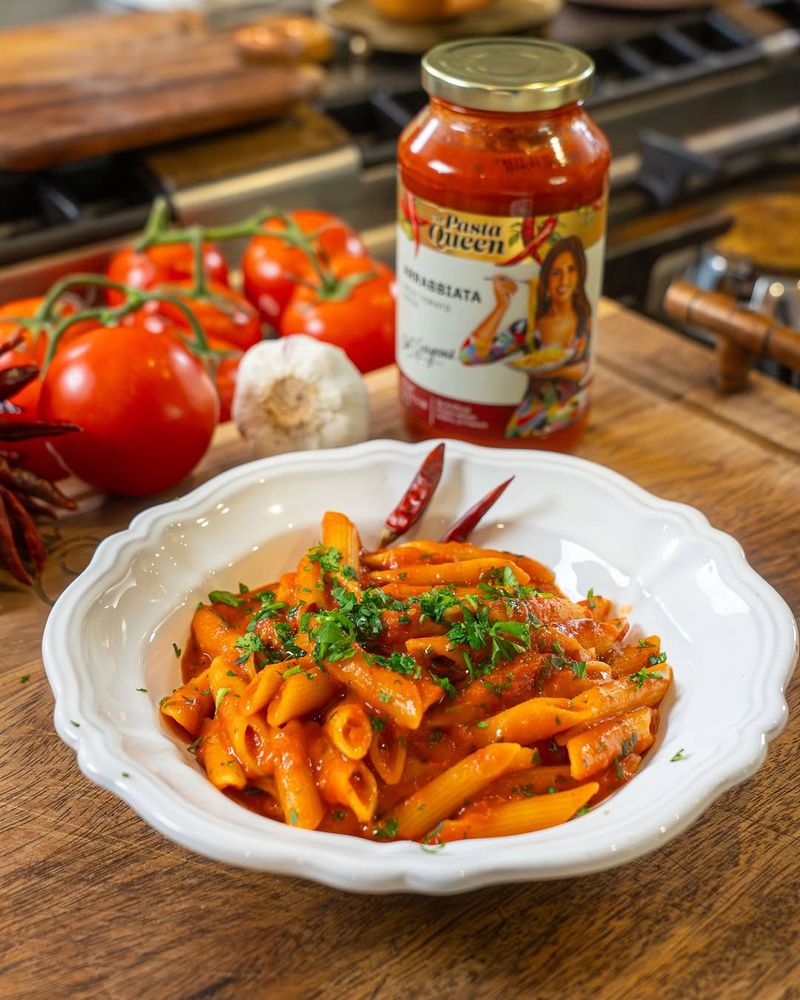
Pasta sauces, especially store-bought ones, can be loaded with sugar and preservatives. These ingredients add unnecessary calories to your meal.
Creating homemade sauces using fresh tomatoes, garlic, and herbs is a healthier and tastier option. By doing so, you ensure that every bite is enriched with flavor and nutrients. Cooking with love and fresh ingredients brings joy and health to your table.
17. High-Fat Dairy
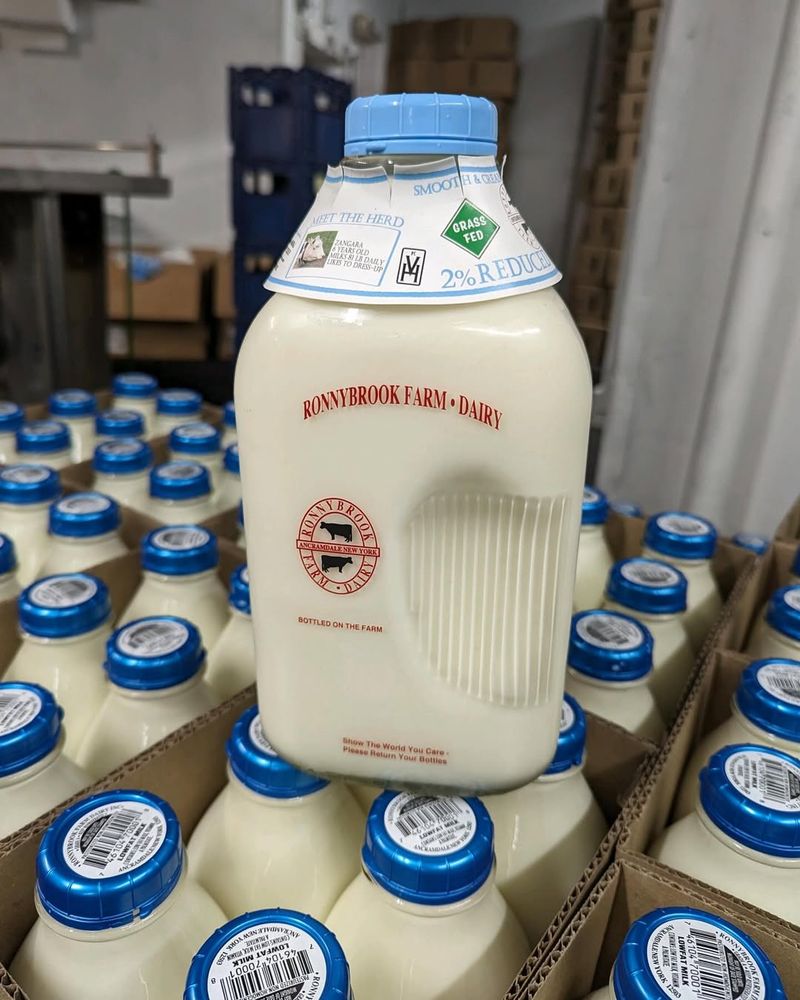
High-fat dairy products, while rich and creamy, can be high in saturated fats. These fats are known to increase cholesterol levels and impact heart health.
Switching to lower-fat or plant-based dairy alternatives can support heart health without sacrificing taste. Exploring these options keeps your diet diverse and heart-friendly. A mindful approach to dairy can make a world of difference.
18. Table Salt

Table salt, though a kitchen staple, can contribute to high blood pressure when used excessively. This can lead to serious cardiovascular problems over time.
Seasoning with herbs and spices can bring flavor without the added sodium. Enhancing your meals with natural flavors promotes health and creativity in the kitchen. Each dish becomes an opportunity to explore and enjoy.
19. Alcohol

Alcohol, in excess, can negatively impact liver health and increase cancer risk. It can also interfere with medications commonly taken by older adults.
Choosing non-alcoholic beverages like herbal teas or sparkling water offers a healthier way to unwind. By moderating alcohol intake, you’re choosing a path of wellness and vitality. This mindful habit empowers you to enjoy life fully and healthily.
20. Red Meat

Red meat, while a good source of protein, can be high in saturated fats. These fats are linked to heart disease and other health issues.
Incorporating more plant-based proteins or lean meats like poultry can be beneficial for heart health. By diversifying protein sources, you support a balanced diet that nourishes and delights. Embracing variety in your meals enhances both flavor and health.
21. Canned Vegetables
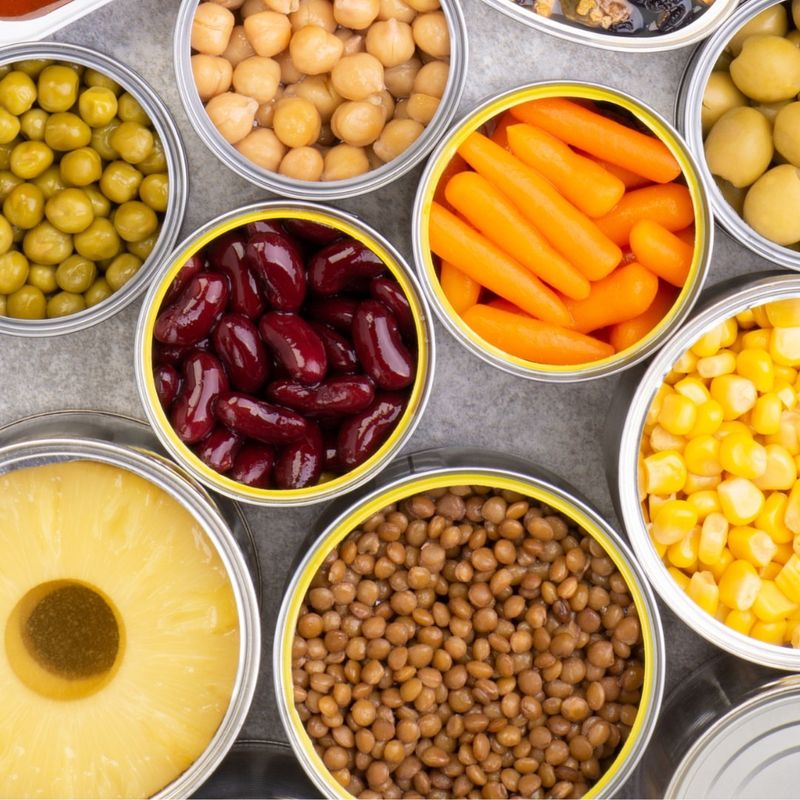
Canned vegetables, though convenient, often contain added sodium and preservatives. These can diminish their nutritional value.
Opting for fresh or frozen vegetables ensures you’re getting the best nutrients. This choice supports your health while still being practical and flavorful. Every meal becomes an opportunity to enjoy the bounty of nature’s garden.
22. Butter

Butter, with its rich taste, can be high in saturated fats. Consuming it in excess might lead to increased cholesterol and heart issues.
Substituting with healthier fats like avocado or olive oil is a heart-friendly choice. These alternatives provide the richness you crave without compromising your health. Each meal becomes a testament to your commitment to well-being.
23. Foods With MSG

Foods containing MSG, a common flavor enhancer, are best avoided. Some people may experience sensitivity, leading to headaches or bloating.
Opting for natural herbs and spices enhances flavor without the side effects. This change elevates your culinary experience, making it both enjoyable and healthy. Each bite is a celebration of natural taste and wellness.
24. Commercial Baked Goods

Commercial baked goods, though delicious, are often filled with trans fats and sugars. These ingredients can contribute to weight gain and heart problems.
Baking at home with whole ingredients allows for control over what goes in. This ensures you enjoy treats that are both satisfying and nourishing. Embrace the joy of baking as a way to treat yourself mindfully.
25. Frozen Meals
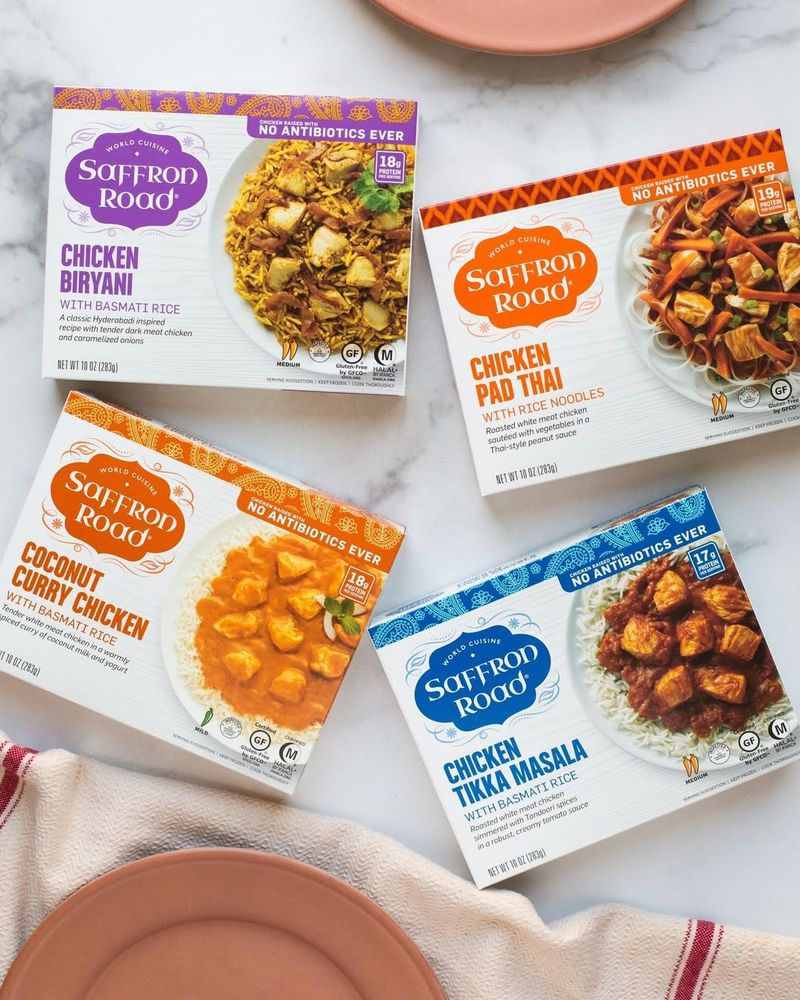
Frozen meals offer convenience but often come with high sodium and low nutritional value. Relying on them can lead to missed opportunities for balanced nutrition.
Cooking fresh meals, even in batches, provides better health benefits and enjoyment. You gain control over ingredients, ensuring each meal supports your health goals. The effort you put into cooking translates to a life rich in flavor and wellness.
26. Fast Food
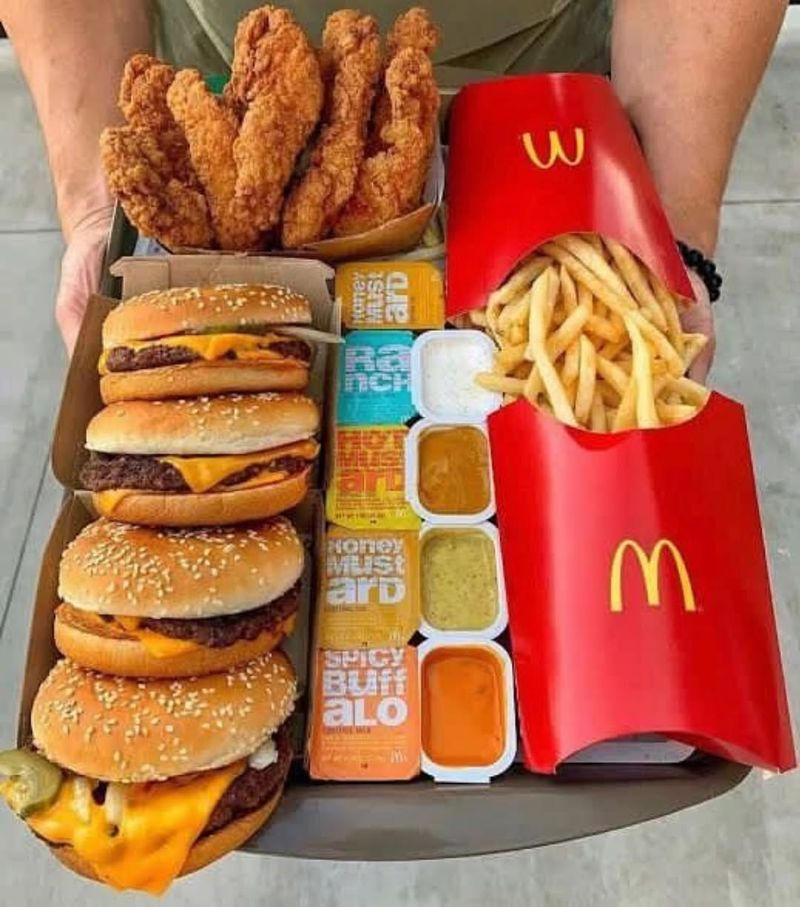
Fast food, while quick and satisfying, is often high in unhealthy fats and sodium. These can contribute to serious health issues like heart disease.
Opting for home-cooked meals or healthier menu options supports long-term well-being. Each decision to eat well is a step toward a more vibrant and energetic life. Celebrating food in its wholesome form enhances both taste and health.

